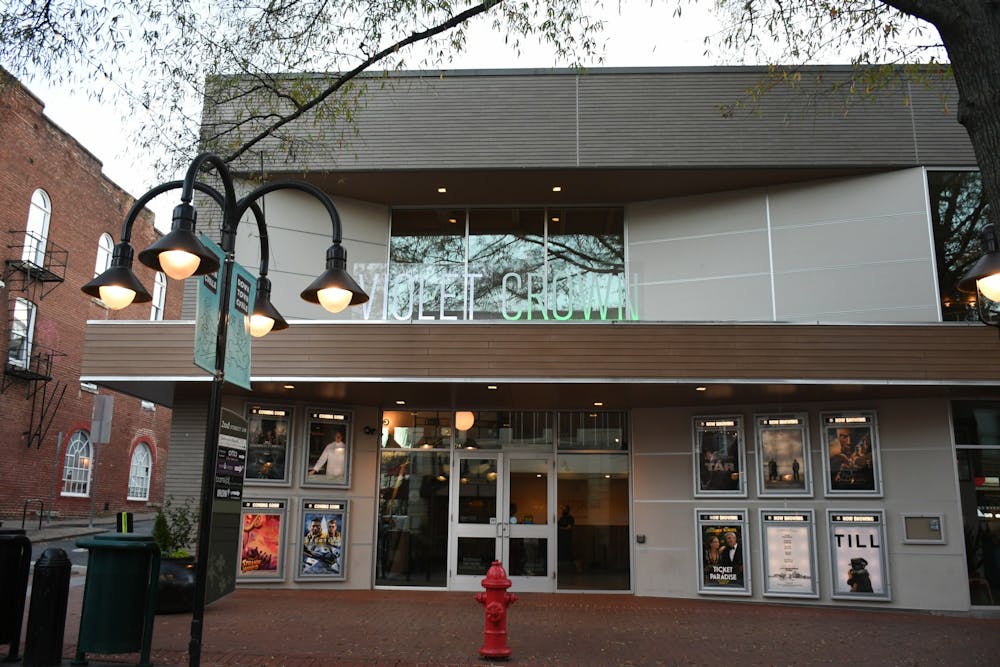“The Hole in The Fence,” which screened Sunday at the Violet Crown as part of the Virginia Film Festival, is the second full-length feature film of Mexican director Joaquin del Paso. The dark coming-of-age thriller set in a picturesque Mexican summer camp, and explores themes of race, class and the violence of adolescence.
Set in Santa Cruz Otlatla, Puebla, “The Hole in The Fence” tells the story of outwardly idyllic hilly retreat Los Pinos, a highly segregated, fenced-in retreat only for the next generation of elites. Upon the discovery of a hole in the fence, neuroticism and fear grows as the boys in the summer camp start to believe greater and greater delusions regarding perceived danger of the local indigenous community nearby.
The film shines in its depictions of power and class. The Los Pinos summer camp rests fenced in on top of a mountain, figuratively and literally looking down on a local indigenous village. In one scene, the descent down the hill shows camp teachers and boys carrying boxes of food and used clothing.
When they arrive at the village, the boys in their uniforms are swarmed by large swaths of poor and destitute villagers, demonstrating a way prejudice is ingrained in the young Mexican elite without ever using overt dialogue. Despite seemingly performing an act of charity, it is clear that the boys learn that the villagers are their inferiors.
Unfortunately, the film has many weaker points that detract from these dramatic setpieces. The performances contribute to an awkward uneasiness which never really lets up — the younger actors consistently come across as unemotional which cheapens the emotional tone, rendering their relationships with the teachers sterile at times. Though the film does not focus on any one character, the strongest performance is of Professor Sztuhr, played by Polish actor Jacek Poniedziałek, the cruel overhead manager of Los Pinos who adds to the tension between the teachers and the boys through his icy and watchful demeanor.
“The Hole in The Fence'' presents itself as a thriller, slowly building up tension in between dramatic plot beats, but fails to reach those dramatic peaks. During the film, the titular hole in the fenced in summer camp ends up having little relevance to the plot. While the hole in the fence is intended to represent a threat to power and status from the loss of their perceived security, its significance feels more like an afterthought rather than an integral plot device. Creating a tense atmosphere around something ultimately superfluous is an interesting concept, but the film fails to maintain tension as the haphazardly thrown together subplots end up feeling pointless.
Joaquin del Paso clearly has a lot he wants to say regarding contemporary Mexican society, but his criticisms are so broad that the focus remains unclear and multiple plot threads with meaningful potential are simply forgotten. Interesting character stories like the socially ostracized paramedic or the bullied indigenous student do not come to any sort of resolution. Several memorably dramatic scenes, like one in which a teacher grabs the neck of a boy singing opera, feel out of place and only relevant as one-off moments of tension.
The psychology of the camp teachers likewise remains underdeveloped. Beyond their self-satisfaction at toughening up the boys, the cartoonishly evil psychological abuse done by the teachers is never given substantial motivation or meaningful relevance to the central messaging of the film about contemporary racism and classism in Mexico.
Other tricky side themes, such as religion being an enabler of oppression, have potential yet remain underdeveloped by the end of the film. Crucifixes, portraits of Jesus and prayer overlook acts of violence and humiliation, but the metaphor of del Paso never extends any further than a basic critique of the religious hypocrisy of the summer camp.
While the perspective of the film offers an interesting view on prejudice in Mexico, the themes tend to lack subtlety and at times feel too absurd to maintain the punch and discomfort del Paso tries to communicate. “The Hole in The Fence” has a lot to say about modern Mexican society, but a lack of focus and clumsy execution adds so many excessive plot points and underdeveloped messages that the central critique of Mexican socioeconomic inequality and prejudice is undermined.







